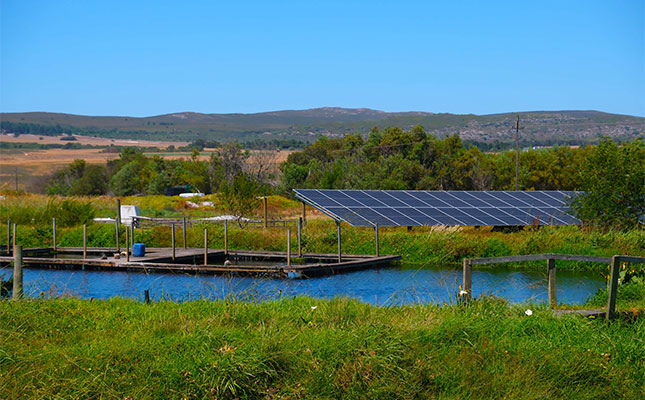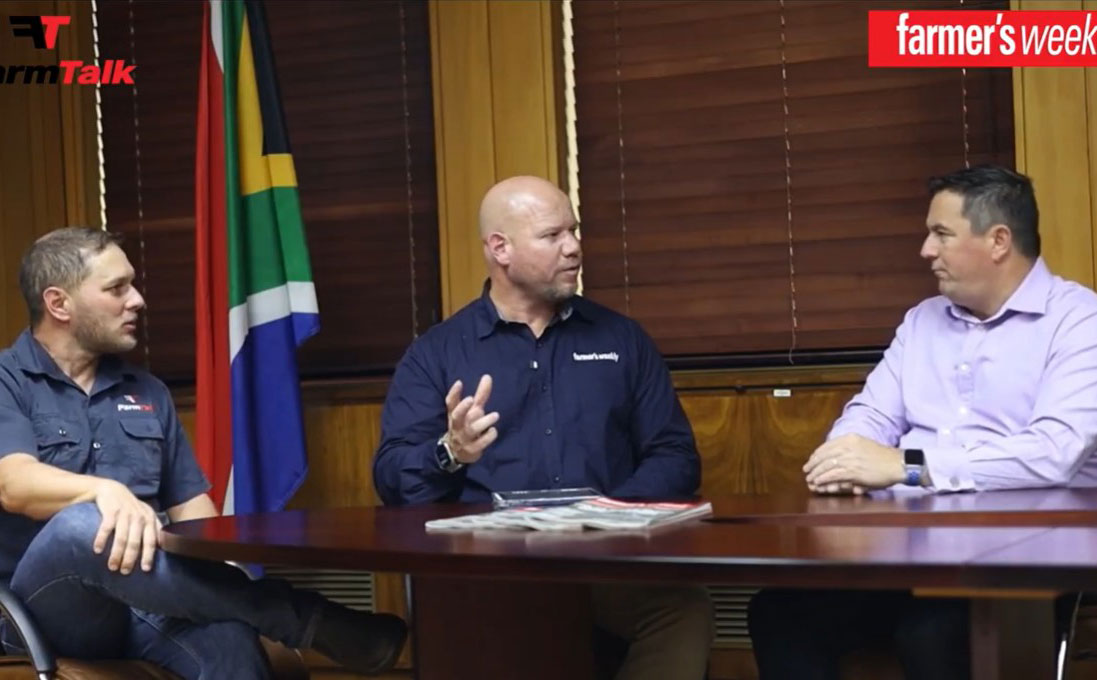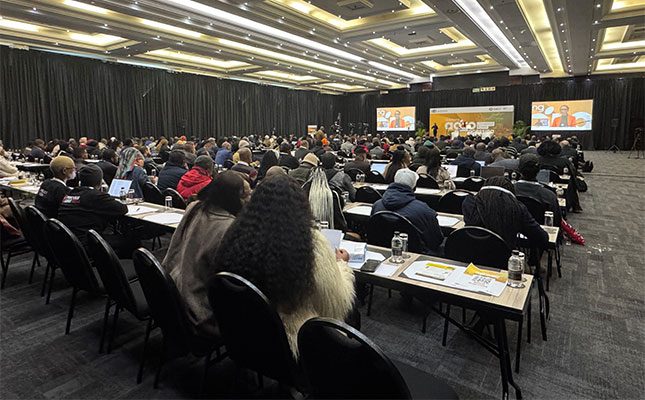
The convention brought together industry leaders, Small, Medium and Micro Enterprises, financiers, investors, and policymakers, with the aim of shaping the future of agro-processing in the province.
The two-day event included high-level panel discussions, deal-making opportunities, and an expo showcasing cutting-edge products, technologies, and success stories from across the agro-processing value chain.
Strategic intervention
In her opening speech, Gauteng MEC for Agriculture and Rural Development, Vuyiswa Ramokgopa, said the convention aimed to define and drive the way forward for development in processing and manufacturing, not only in the province but also across the African continent.
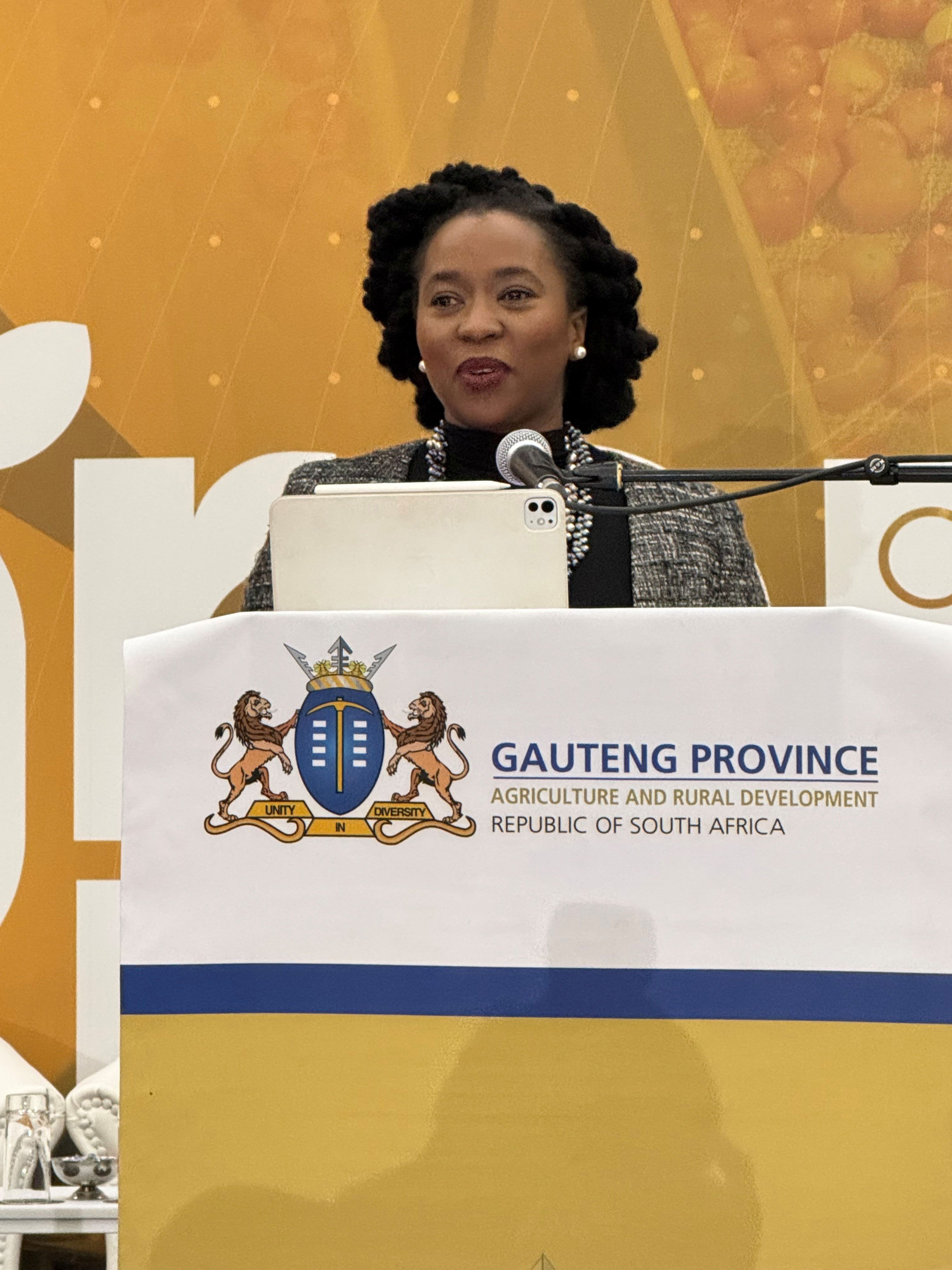
“The time for polite reflection is over. This convention is a strategic intervention to kick-start growth in the province. It is imperative that we induce economic growth so that we can address job creation, development, and food security,” said Ramokgopa.
She emphasised the need to improve collaboration across the value chain, eliminate obstacles to growth, and attract new investment.
“We need to use this opportunity to strengthen linkages, remove bottlenecks and open opportunities,” she said. “We want to position Gauteng as a leading agro-processing hub in South Africa, with a strong focus on innovation, enterprise development, and investment.”
Building blocks for progress
Ramokgopa said the convention aimed to review past public and private sector interventions, strengthen partnerships, and set out a unified roadmap for agro-processing development in Gauteng.
This roadmap, she explained, rests on five pillars:
- Unlocking domestic and foreign investment. “It is important to attract and coordinate investment. The fact that we have so many representatives from embassies at the convention is heartening,” she said.
- Aggregating value chains for inclusion to enable small-scale producers to plug into the larger role players with the aim of developing small businesses and driving collective scale.
- Roundtable formalising to sustain cross pollination of ideas, sharing of structural capacity, and leveraging shared investments.
- To standardise certification and enable export readiness. “We need to meet and exceed global food standards and for that businesses need to be certified and compliant.”
- Monitoring the impact and measuring the change. “What does not get measured will not get done,” she stressed. “We need to track real outcomes, export volumes and market penetration.”
Exporting beyond SA borders
She also stated that the African Continental Free Trade Area agreement (AfCFTA) offers the opportunity for businesses to export beyond the provincial and national borders. “We must use these opportunities and feed our neighbours and beyond. We must ship product to other countries. We must manufacture and supply products that other people would want to buy. The world must recognise that our product not only comes from an emerging market, but as essential!”
She pointed out that an increase of 2% in processing output, can mean an increase of 10% in employment in the province.
She, however, recognised some challenges to agro-processing and manufacturing growth in the province. These include:
- Entry barriers for small farmers and processors.
- Access to finance.
- Infrastructural challenges such as collective manufacturing and processing facilities. “We need infrastructural development that will support the sharing of equipment as well as distribution and logistical capabilities.”
- Access to markets.
Potential to change lives
Gauteng’s MEC for Finance and Economic Development, Lebogang Maile, said agro-processing has the potential to transform lives by creating jobs and boosting food security.
“Food security and mental health are intertwined in many ways. Food security can have a significant impact on mental and physical health. Interventions such as the development of the manufacturing and processing industries in the province can unlock job opportunities for many of the provinces’ inhabitants. The cost of living in Gauteng is high and many people are on the brink of food insecurity.”
He pointed out that investment in the agro-processing sector can contribute to the economic and societal growth of the province. “The agricultural sector is crucial for food security and poverty alleviation,” said Maile.
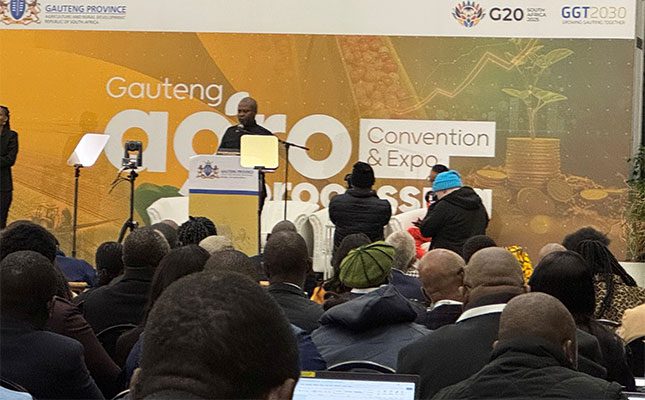
He stated that in many ways the country’s, and even the broader region’s economy, depended on economic growth in Gauteng.
Maile announced that government has allocated R10,8 billion for infrastructure development over the next three years.
He called on the private sector to support government endeavours and called on entrepreneurs to use the platform to connect directly with financiers.
Get trusted farming news from Farmers Weekly in Google Top Stories.
➕ Add Farmers Weekly to Google ✔ Takes 10 seconds · ✔ Remove anytime






